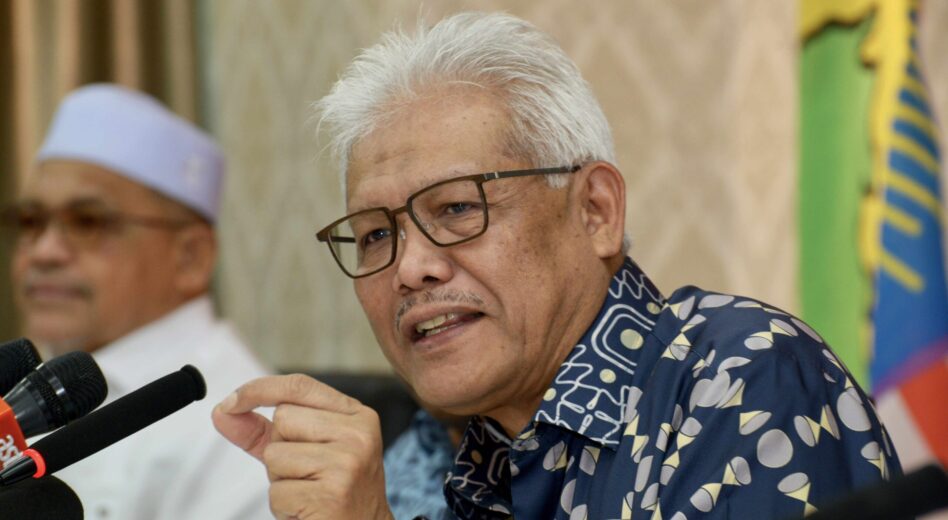ON the occasion of World Day Against the Death Penalty today, Malaysians Against Death Penalty and Torture (MADPET) notes positively the change in Malaysia’s position to now be inclined towards the abolition of death penalty.
On Dec 16 lats year, Malaysia voted in support of the resolution calling for a moratorium on the use of the death penalty at the United Nations General Assembly (UNGA). The UNGA adopted the resolution with 123 votes in favour, 38 against and 24 abstentions. The global trend indicates growing support for abolition.
Barisan Nasional Rule
During the Barisan Nasional (BN) rule under the then Prime Minister Datuk Seri Najib Tun Razak, the then Minister in the Prime Minister’s Department Datuk Seri Azalina Othman, the de facto Law Minister, during the Parliamentary session on Nov 2, 2016, stated that Malaysia was not just looking at abolishing the mandatory death penalty, but the death penalty altogether.
The BN Government then acted to remove mandatory death penalty for drug trafficking offences via an amendment to the Dangerous Drugs Act 1952, which came into force on March 15, 2018.
Now, judges could sentence those convicted to death or to imprisonment for life (plus whipping of not less than fifteen strokes). However, the alternate to death penalty was available only if limited conditions were fulfilled, one of which was “that the person convicted has assisted an enforcement agency in disrupting drug trafficking activities within or outside Malaysia…”, whereby this draconian condition undermines also one’s right to a fair trial, which include the right to appeals.
Pakatan Harapan Plus Rule
During the Pakatan Harapan Plus (PH Plus) rule, there was first talks about abolishing the death penalty but sadly there was not even a Bill tabled on it.
It was announced on Oct 10, 2018 (being also the World Day Against the Death Penalty), that the Malaysian Cabinet had reached a consensus that the death penalty for 33 offences as provided for under eight Acts of law would be abolished.
However, on March 13, 2019, it was reported that Deputy Minister in the Prime Minister’s Department Mohamed Datuk Hanipa Maidin in Parliament said that the Government will only repeal the mandatory death penalty for 11 criminal offences.
The change in position from total abolition of death penalty, to just abolishing the mandatory death penalty may have sadly been because of a knee-jerk response to political actions initiated by the then Opposition, for example the ‘‘MCA Youth against Abolition of the Death Penalty’’ campaign that started on Nov 20, 2018.
It is disturbing when a Government’s principled position and/or promises, can so easily change simply because of a questionable worry of possible loss of political support that may affect future elections. When the French National Assembly voted to abolish the death penalty 40 years ago, more than 60% of the population still backed capital punishment. But the then president François Mitterrand and the Government stood by their position, no matter the political cost.
Perikatan-BN-GPS Plus Rule
When the Perikatan Nasional (PN)-BN Plus came into power, there is still no Bills tabled to abolish the death penalty, or even just the mandatory death penalty. Malaysia, under this Government, continued to vote in favour of UNGA resolution calling for a moratorium on executions pending abolition of the death penalty.
Now, we have a new UMNO Prime Minister, heading a BN-Perikatan-GPS plus coalition Government, and we hope that this administration finally do the needed to abolish the death penalty, and until then continue to maintain a moratorium on executions.
Death Row
Malaysia has a very large number of persons on death row. An Amnesty International report disclosed that in early 2019, there were 1,281 persons on death row, including 141 women. Today, the numbers will be even higher.
Getting statistics from the Government is very difficult and the normal method for a MP or Senator to seek the figures at the Parliament. MADPET calls for the Malaysian Government to be transparent, and reveal statistics of death row prisoners, and even crimes committed at least once every quarter.
The then amendment to the Dangerous Drugs Act 1952(DDA), that abolished mandatory death penalty, failed to address the issue of persons who committed the offence before the amendment came into force, and those that were on death row. Note that amendment came about after a realisation that most on death row are “mules”, not the “kingpins” of the drug trafficking trade, and as such “mules” or persons conned should justly not be sentenced to death. The position that led to the amendment of the DDA should have resulted in pardons of many on death row, commuting their death sentence to imprisonment.
Pardon powers with King and state Rulers
In Malaysia, the King have the power to pardon if the offence was committed in Federal Territories only, and with regard to offences committed in States, then the “…Ruler or Yang di- Pertua Negeri of a State has power to grant pardons.”.
As many of the states are ruled by the Opposition, the question is why these state governments failed to move their Rulers to pardon and commute death sentences to prison terms for those on death row for offences committed in his State.
In 1983, the late Datuk Mokhtar Hashim, then Culture, Youth and Sports Minister received the death penalty for the murder of Datuk Taha Talib, the state assemblyman for Tampin. In 1984, he received a “royal pardon” when his death sentence was commuted to life imprisonment, and thereafter in 1991 another “royal pardon” set him free from prison. We hope that pardons and commutation of sentences are available to all, not certain politicians.
MADPET calls on Federal and state governments to move to get persons on death row pardoned, and their sentences commuted. Malaysia must be against the taking of lives, for repentance and rehabilitation, for second chances and re-integration into society for the reformed criminal.
Extrajudicial killings/executions
When the State, through police or other law enforcement personnel, instead of arresting and according a person a fair trial, ends up killing a suspect or some other, there must be an independent inquiry to determine whether it was an indirect “death penalty” by State or its agents. This could be done by way of an inquest. As a matter of policy and/or law, the Government can decide that all such police killing incidents will be inquired into by an independent Coroner (a Magistrate or Judge).
MADPET reiterates its call for the abolition of the death penalty, including extrajudicial killings, and that Malaysia continues to impose a moratorium on execution pending abolition.
The statement was issued by the Malaysians Against Death Penalty and Torture.
The views expressed are solely of the author and do not necessarily reflect those of Focus Malaysia.










